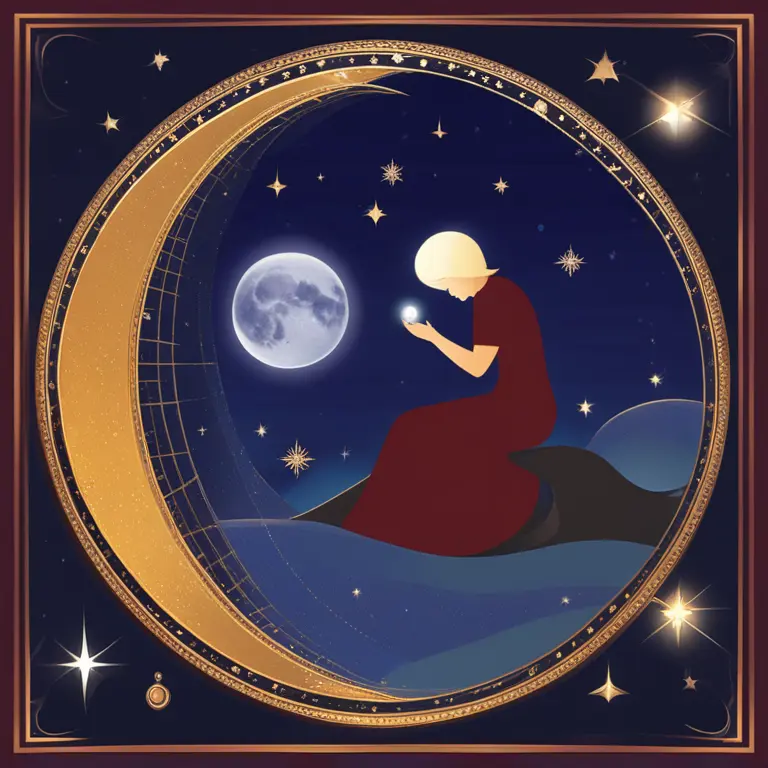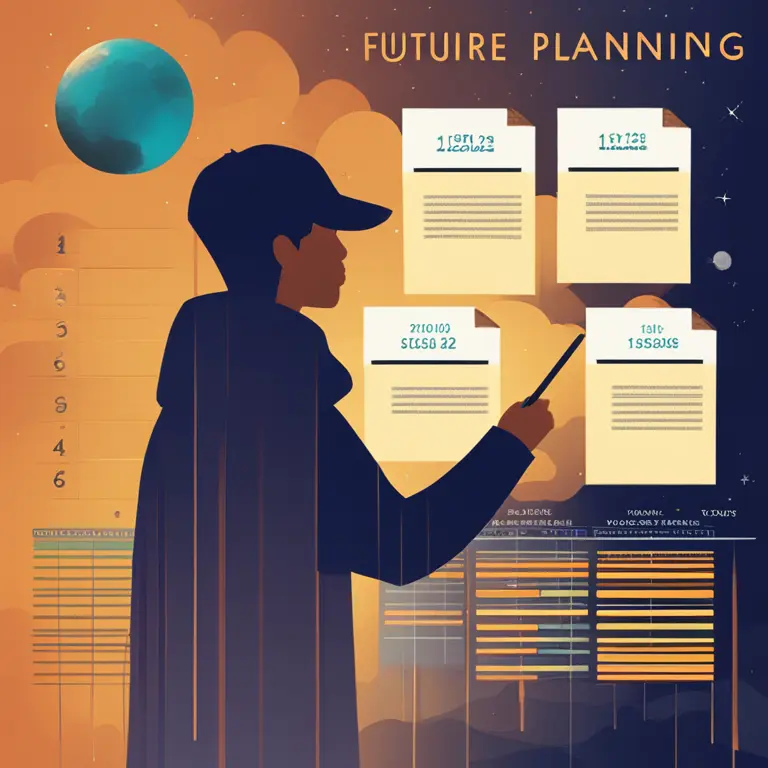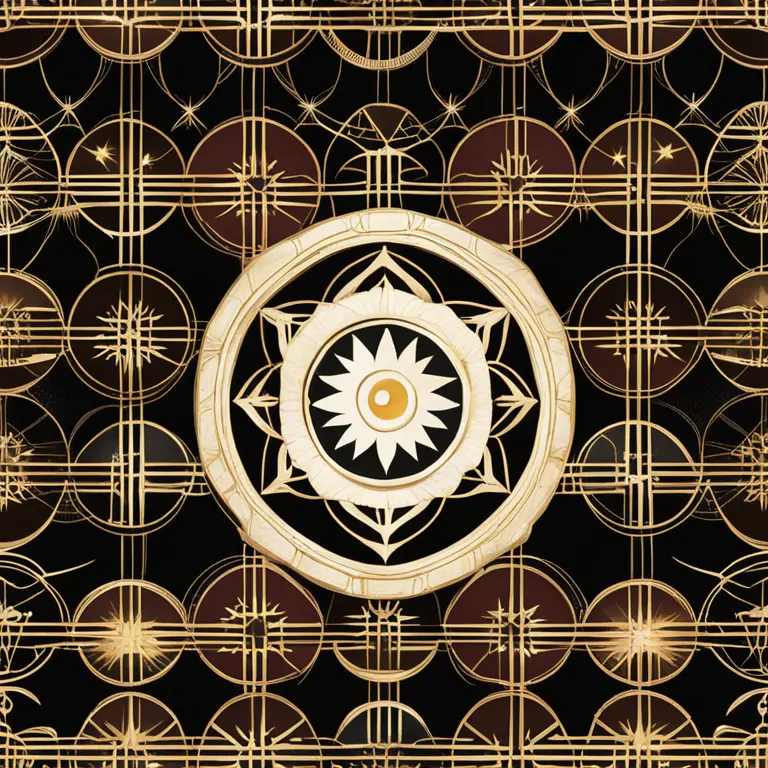
The Moon Phase & Lunar Eclipse
Uncover the moon phase during a lunar eclipse and its significance in astrology. Learn how this celestial event influences horoscopes and biorhythms.
article by Priya Deshmukh
Phenomenon of a Lunar Eclipse
A lunar eclipse is a fascinating celestial event that occurs when the Earth positions itself between the Sun and the Moon, casting a shadow over the Moon. This alignment can only happen when the Moon is full, which is the phase known as the Full Moon. During a lunar eclipse, the Earth's shadow blocks sunlight that would normally reflect off the Moon’s surface, which results in a dimming or color change of the Moon. There are two types of lunar eclipses: partial and total. In a partial lunar eclipse, only part of the Moon falls under the Earth's shadow, whereas a total lunar eclipse occurs when the entire Moon passes through the Earth’s umbra - the darkest part of its shadow.

Astrological Significance of Lunar Eclipses
In astrology, lunar eclipses are believed to be powerful times of change and manifestation. They often mark significant shifts in one's emotional and spiritual landscapes. Since eclipses typically come in pairs with solar eclipses, occurring approximately two weeks apart, these periods are viewed as gateways to transformative life events. The Full Moon’s completion energy, combined with the eclipse's influence, supposedly accelerates personal growth and releases outdated patterns or belief systems. As such, they are opportune times for setting intentions for future goals and releasing the past.

Impact on Horoscopes and Biorhythms
The effects of a lunar eclipse on horoscopes and biorhythms can be profound. Every individual may experience shifts differently, depending on their birth chart and current transits. Generally, it is thought that a lunar eclipse can have a more significant impact on emotional states and internal rhythms. Considering the individual's Moon sign can provide insights into the areas of life that may be most affected. Horoscopes for 2024 and beyond take into account the specific dates and astrological signs in which these eclipses occur, offering tailored guidance during these intense periods.

Planning for Future Eclipses
Eclipses follow a cycle known as the Saros cycle, lasting around 18 years. Thus, by understanding the pattern, one can anticipate future eclipses and their astrological implications. For example, there were lunar eclipses in the signs of Taurus and Scorpio in 2023, which will influence similar areas of life for several years to come. Keeping track of these cycles, individuals can prepare for shifts in energies, plan important life events, or avoid making major decisions during these potentially tumultuous times.

Celestial Insights for Personal Growth
Embracing the insights that lunar eclipses offer can promote self-awareness and growth. Astrology encourages individuals to reflect on their life journey, especially during such significant celestial events. By understanding the moon phase that a lunar eclipse occurs in and its implications, one can seize the opportunity to meditate, journal, or engage in other self-reflective activities intended to facilitate personal development and spiritual progress.
Published: 1/19/2024
Modified: 1/19/2024
More predictions
Come back here soon to learn more about yourself and your future


Moon Phases: How They Impact On Sleep
Discover how the different phases of the moon may influence your sleep patterns and overall nocturnal well-being.


Moon Phases: Celestial Dynamics and Impact
Discover the intriguing facts about moon phases and their significance in celestial dynamics, astrology, and personal biorhythms.


Are Moon Phases Universal?
Delve into the intriguing question of whether the moon phase is the same across all locations on our planet, and how this celestial phenomenon influences astrology and horoscopes.